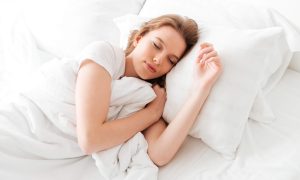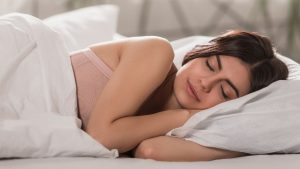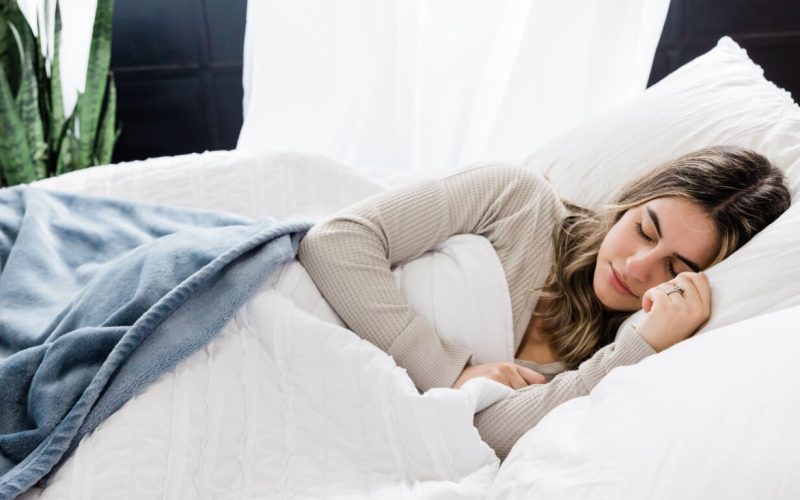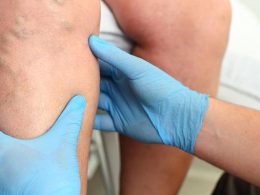Sleep is a fundamental aspect of human health, playing a crucial role in physical well-being and immune function. In today’s fast-paced world, where schedules are often packed and stress levels high, prioritizing adequate sleep is more important than ever. Understanding the significance of sleep and adopting healthy sleep habits can lead to numerous benefits for overall health and immunity.
Introduction
Sleep is a natural physiological process essential for the body’s restoration and rejuvenation. It encompasses various stages, each serving distinct functions vital for physical and mental health. Adequate sleep is crucial for maintaining optimal cognitive function, emotional well-being, and overall quality of life.

Define the Health Topic
Sleep is a state of reduced consciousness and sensory activity, accompanied by physiological changes in the body. It is characterized by altered brainwave patterns, decreased muscle activity, and slowed breathing. Sleep occurs in cycles, consisting of rapid eye movement (REM) and non-rapid eye movement (NREM) stages.
Explain its Relevance and Importance
Sleep plays a vital role in various physiological processes, including cellular repair, memory consolidation, and hormone regulation. It contributes to overall health and well-being by supporting immune function, promoting physical recovery, and enhancing cognitive performance. Chronic sleep deprivation has been linked to numerous health issues, including obesity, diabetes, cardiovascular disease, and compromised immune function.
Types and Categories
Types of Sleep
- REM Sleep: Characterized by rapid eye movements, vivid dreams, and increased brain activity.
- NREM Sleep: Divided into three stages, each associated with different brainwave patterns and physiological changes.
Sleep Categories
- Normal Sleep: Consists of adequate duration, quality, and timing, supporting optimal health and functioning.
- Disrupted Sleep: Occurs due to various factors, including sleep disorders, environmental disturbances, and lifestyle habits.
Symptoms and Signs
Common Symptoms of Sleep Deprivation
- Daytime Fatigue: Feeling tired and lethargic despite adequate rest.
- Difficulty Concentrating: Impaired cognitive function and decreased alertness.
- Mood Changes: Increased irritability, mood swings, and emotional instability.
- Impaired Performance: Decreased productivity, memory lapses, and difficulty making decisions.
Signs of Sleep Disorders
- Insomnia: Difficulty falling asleep, staying asleep, or experiencing non-restorative sleep.
- Sleep Apnea: Episodes of interrupted breathing during sleep, often accompanied by loud snoring and daytime sleepiness.
- Restless Leg Syndrome: Uncomfortable sensations in the legs, leading to an irresistible urge to move them, particularly at night.
- Narcolepsy: Excessive daytime sleepiness, sudden loss of muscle tone (cataplexy), and hallucinations upon falling asleep or waking up.
Causes and Risk Factors
Biological Factors
- Genetics: Susceptibility to certain sleep disorders may be inherited.
- Age: Changes in sleep patterns and architecture occur with advancing age.
- Medical Conditions: Chronic illnesses, neurological disorders, and hormonal imbalances can disrupt sleep.
Environmental Factors
- Noise: Loud or persistent noises can interfere with sleep quality and duration.
- Light: Exposure to artificial light, particularly blue light from electronic devices, can disrupt the body’s natural sleep-wake cycle.
- Temperature: Extreme temperatures, either too hot or too cold, can make it difficult to fall or stay asleep.
Lifestyle Factors
- Stress: High levels of stress or anxiety can lead to difficulty falling asleep or staying asleep.
- Sleep Hygiene: Poor sleep habits, such as irregular sleep schedules or excessive caffeine intake, can negatively impact sleep quality.
- Diet and Exercise: Unhealthy eating habits and lack of physical activity may contribute to sleep disturbances.
Diagnosis and Tests
Diagnostic Tools
- Sleep Diary: Recording sleep patterns, habits, and symptoms over a period of time.
- Polysomnography: Overnight sleep study conducted in a specialized sleep laboratory to monitor various physiological parameters.
- Actigraphy: Continuous monitoring of movement and activity patterns using a wrist-worn device.
Tests for Sleep Disorders
- Multiple Sleep Latency Test (MSLT): Measures daytime sleepiness and assesses the severity of sleep disorders like narcolepsy.
- Home Sleep Apnea Test (HSAT): Portable device used to screen for obstructive sleep apnea in the comfort of the patient’s home.
- Electroencephalography (EEG): Records electrical activity in the brain to evaluate sleep stages and detect abnormalities.
Treatment Options
Medical Treatments
- Medications: Prescription or over-the-counter drugs to alleviate symptoms of sleep disorders, such as insomnia or restless leg syndrome.
- Continuous Positive Airway Pressure (CPAP): Device worn during sleep to maintain open airways and prevent obstruction in patients with sleep apnea.
- Light Therapy: Exposure to bright light sources to regulate circadian rhythms and treat conditions like seasonal affective disorder (SAD).
Therapies and Interventions
- Cognitive Behavioral Therapy for Insomnia (CBT-I): Psychological treatment focused on changing negative thought patterns and behaviors associated with sleep difficulties.
- Relaxation Techniques: Practices such as progressive muscle relaxation, deep breathing exercises, and mindfulness meditation to promote relaxation and reduce stress before bedtime.
- Sleep Hygiene Education: Behavioral interventions emphasizing the importance of establishing regular sleep routines and creating a conducive sleep environment.
Lifestyle Adjustments
- Dietary Changes: Avoiding stimulants like caffeine and alcohol, consuming light meals before bedtime, and incorporating sleep-promoting foods into the diet.
- Physical Activity: Regular exercise, particularly aerobic activities like walking or cycling, can improve sleep quality and duration.
- Stress Management: Techniques such as yoga, tai chi, and biofeedback to reduce stress and promote relaxation.
Preventive Measures

Sleep Hygiene Practices
- Maintain a Consistent Sleep Schedule: Going to bed and waking up at the same time every day, even on weekends.
- Create a Relaxing Bedtime Routine: Establish calming activities before bed, such as reading, taking a warm bath, or listening to soothing music.
- Optimize Sleep Environment: Ensure a comfortable mattress and pillows, eliminate noise and light disturbances, and regulate room temperature for optimal sleep conditions.
Healthy Lifestyle Habits
- Limit Screen Time: Minimize exposure to electronic devices, especially before bedtime, to reduce the impact of blue light on sleep.
- Manage Stress: Practice stress-reduction techniques such as deep breathing, progressive muscle relaxation, or meditation to promote relaxation and better sleep.
- Avoid Stimulants: Limit caffeine and alcohol consumption, particularly in the hours leading up to bedtime, as they can interfere with sleep quality and duration.
Conclusion
Embracing the Power of Quality Sleep
In conclusion, sleep is a fundamental aspect of health and well-being that should not be overlooked. By prioritizing quality sleep and implementing strategies to improve sleep habits, individuals can enhance productivity, performance, and overall quality of life. Investing in good sleep hygiene and seeking professional help for sleep disorders can lead to significant improvements in physical and mental well-being.










